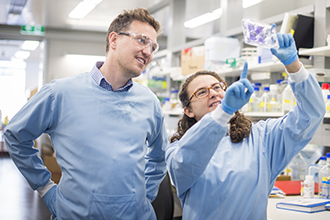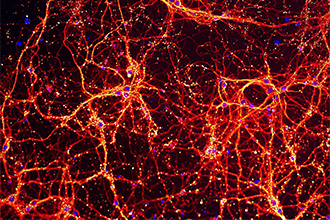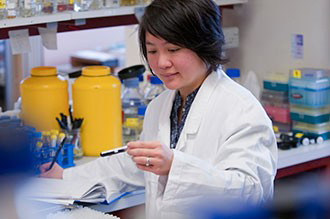Baker TL, Wright DK, Thergarajan P, Uboldi AD, Vo A, Wilson T, Tonkin CJ, O’Brien TJ, Antonic-Baker A, Asmussen MJ, McDonald SJ, Casillas-Espinosa PM, Jones NC, Ali I, Sun M, Shultz SR. A pre-existing chronic Toxoplasma gondii infection promotes epileptogenesis and neuropathology in a mouse model of mesial temporal lobe epilepsy. Brain Behavior and Immunity. 2025;128:10.1016/j.bbi.2025.04.026
Liyanage KLDTD, Amery-Gale J, Uboldi AD, Adriaanse K, Firestone SM, Tonkin CJ, Jabbar A, Hufschmid J. Seroprevalence and risk factors for Toxoplasma gondii exposure in Australian feral and stray cats using an in-house modified agglutination test. Veterinary Parasitology. 2024;332:10.1016/j.vetpar.2024.110306
Baker TL, Wright DK, Uboldi AD, Tonkin CJ, Vo A, Wilson T, McDonald SJ, Mychasiuk R, Semple BD, Sun M, Shultz SR. A pre-existing Toxoplasma gondii infection exacerbates the pathophysiological response and extent of brain damage after traumatic brain injury in mice. Journal of Neuroinflammation. 2024;21(1):10.1186/s12974-024-03014-w
Seizova S, Ferrel A, Boothroyd J, Tonkin CJ. Toxoplasma protein export and effector function. Nature Microbiology. 2024;9(1):10.1038/s41564-023-01563-z
Wilde M-L, Ruparel U, Klemm T, Lee VV, Calleja DJ, Komander D, Tonkin CJ. Characterisation of the OTU domain deubiquitinase complement of Toxoplasma gondii. Life Science Alliance. 2023;6(6):10.26508/lsa.202201710
Dans MG, Piirainen H, Nguyen W, Khurana S, Mehra S, Razook Z, Geoghegan ND, Dawson AT, Das S, Schneider MP, Jonsdottir TK, Gabriela M, Gancheva MR, Tonkin CJ, Mollard V, Goodman CD, McFadden GI, Wilson DW, Rogers KL, Barry AE, Crabb BS, de Koning-Ward TF, Sleebs BE, Kursula I, Gilson PR. Sulfonylpiperazine compounds prevent Plasmodium falciparum invasion of red blood cells through interference with actin-1/profilin dynamics. PLOS Biology. 2023;21(4):10.1371/journal.pbio.3002066
John A, Bader SM, Soler NM, Wiradiputri K, Tichkule S, Smyth ST, Ralph SA, Jex AR, Scott NE, Tonkin CJ, Goddard-Borger ED. Conservation, abundance, glycosylation profile, and localization of the TSP protein family in Cryptosporidium parvum. Journal of Biological Chemistry. 2023;299(3):10.1016/j.jbc.2023.103006
Tsee Dawson A, Tonkin CJ. A CRISPR upgrade unlocks Toxoplasma gene function. Trends in Parasitology. 2022;38(10):10.1016/j.pt.2022.07.007
Jex AR, Tonkin CJ, Ralph SA. 3, 2, 1, go! Cryptosporidium counts down to sex. PLOS Biology. 2022;20(5):10.1371/journal.pbio.3001638
Seizova S, Ruparel U, Garnham AL, Bader SM, Uboldi AD, Coffey MJ, Whitehead LW, Rogers KL, Tonkin CJ. Transcriptional modification of host cells harboring Toxoplasma gondii bradyzoites prevents IFN gamma-mediated cell death. Cell Host & Microbe. 2022;30(2):10.1016/j.chom.2021.11.012





